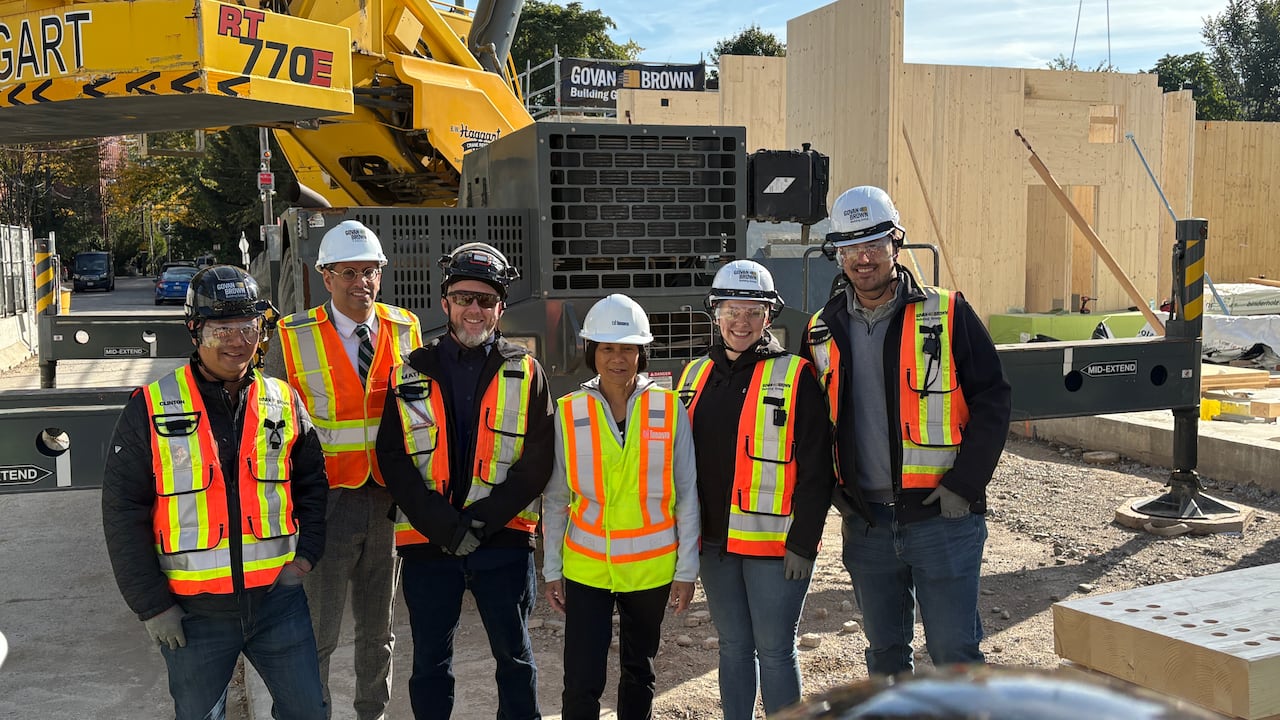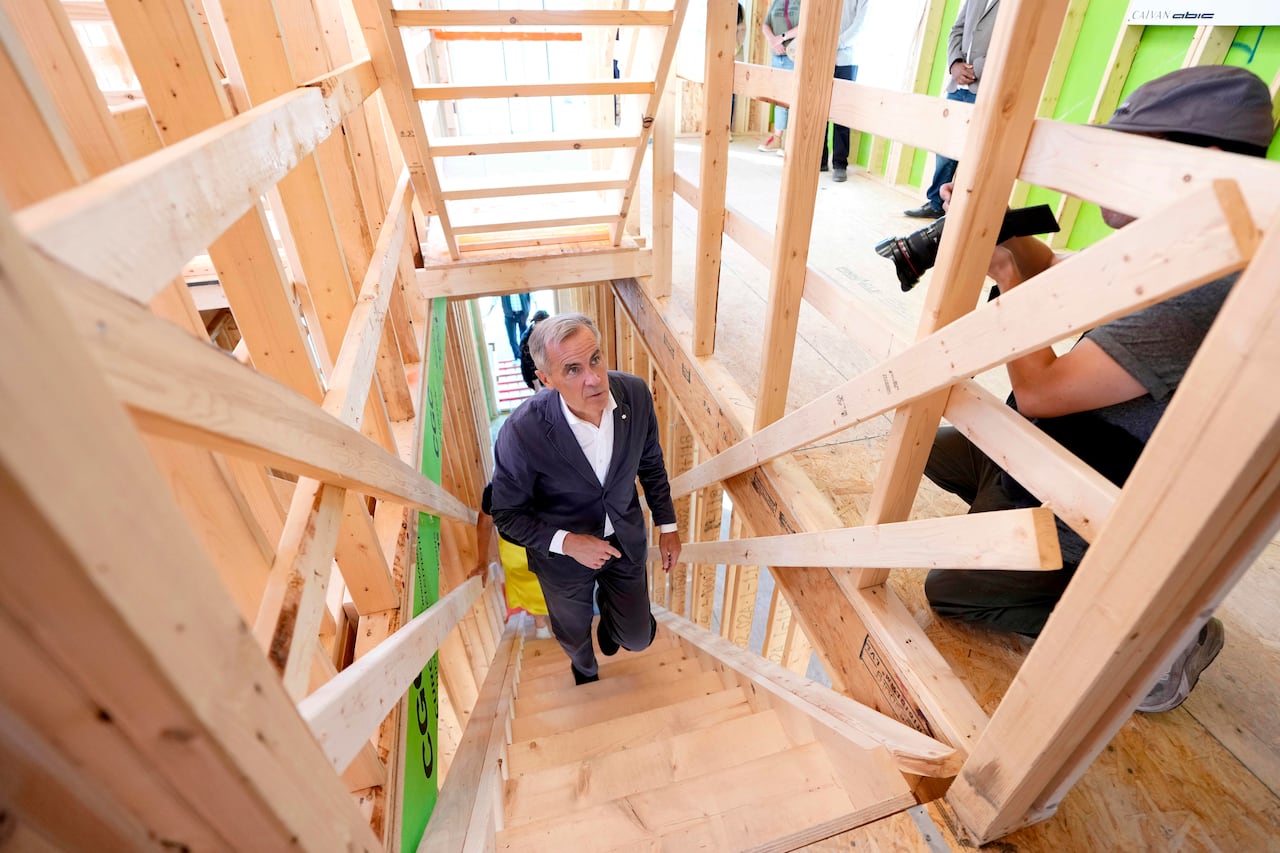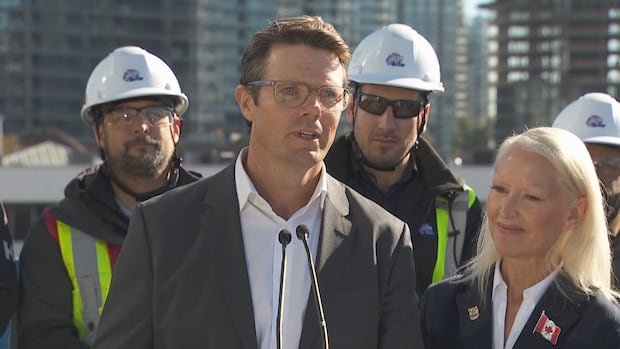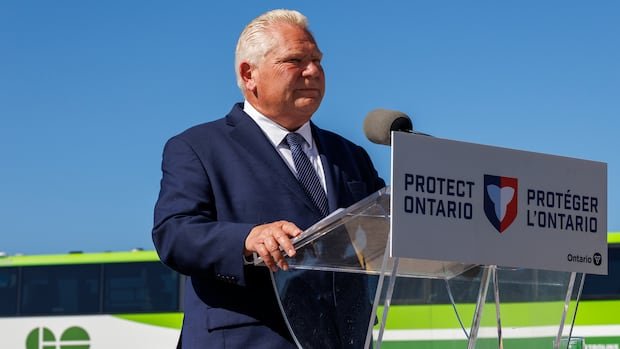Federal Housing Minister Gregor Robertson’s office says the Liberal government remains committed to halving municipal development spending, after the minister was vague about fulfilling the promise at a news conference in Toronto on Tuesday.
Robertson was asked if the government was still going to cut rates to reduce the cost of building homes.
“Development charges are a major challenge to the cost of construction across Canada, and that’s why we’re committed to reducing those charges,” Robertson said, without detailing where the government is with its changes.
“We were initially looking at a 50 per cent reduction in partnership with provinces and territories. We are working on that process now across the country.”
The minister suggested that more details will be included in the federal budget on November 4.
Murtaza Haider, executive director of the Cities Institute at the University of Alberta, says high costs and economic uncertainty over U.S. tariffs are causing a slowdown in sales in Canada’s housing market.
Robertson’s press secretary, Renee Proctor, later confirmed to The Canadian Press that the commitment to cut development spending was still in place.
“Canadians gave us a mandate to act quickly, reduce costs and build housing. As outlined in the platform, we are committed to halving municipal development costs for multi-unit residential housing. We hope to have more to say soon,” he said.
The Liberals’ spring election platform promised to cut development costs in half over five years by working with provinces and territories to fill gaps left by forgone revenue. The platform cited upcoming federal investments in water, power lines and wastewater systems as ways to offset the cash loss.
Development charges – fees paid by builders primarily to cover the infrastructure costs associated with new homes – have been a rapidly growing source of funding for councils in recent years.
Some advocates say those rising fees increase the cost of construction and undermine efforts to close Canada’s housing supply gap.

Toronto Mayor Olivia Chow said at the same media event that financing is a major obstacle preventing many builders from starting construction, and that’s why the city is talking to Ottawa about adjusting development costs.
“We’re really focused on reducing the cost of construction. That’s the goal here,” Robertson told reporters.
“Infrastructure for cities is a big part of that cost, and development costs (certainly here in Toronto and Vancouver, my hometown) are very closely related to that infrastructure cost.”
Proctor also noted that Robertson told the Union of British Columbia Municipalities convention last month that Ottawa plans to create a program to “strike a balance” between reducing development costs and ensuring local governments invest in housing infrastructure.
Robertson said at the time that addressing construction costs this way can be complicated because municipalities handle development fees differently across the country, and some don’t charge them at all.
“There is no simple solution, but we will introduce these improvements later this fall,” he said in September.

The minister was in Toronto to announce federal funding for the city’s sewer infrastructure and for the first housing project to be undertaken through the government’s new affordable housing agency, Build Canada Homes.
The federal government will provide up to $283 million through the Canada Housing Infrastructure Fund to upgrade the city’s Black Creek sewer system, along with $425 million in city funding.
The sewer currently supplies about 350,000 inhabitants. Housing, Infrastructure and Communities Canada said in a news release that improvements to the line will allow Toronto to expand the system to support the construction of an additional 63,000 homes.
Build Canada Homes’ first project will add 540 units at Arbo Downsview, at least 40 per cent of which will be affordable housing. The agency will release a request for qualifications this week for developers who can use factory-built housing technologies to execute the project.








